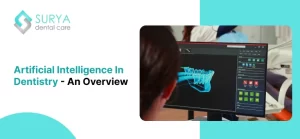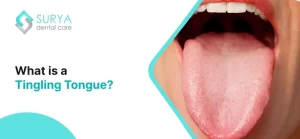It’s understandable that everyone has a desire to kill tooth nerve pain permanently in 3 seconds to get relief from tooth nerve pain very fast, as it causes discomfort and affects our daily activities. But Killing Tooth pain nerves permanently in 3 seconds is not possible. That much faster solution to heal tooth pain never existed.
Everyone wants immediate relief from tooth nerve pain, also called toothache or tooth pain. But in reality, to get permanent relief from tooth nerve pain, we need to understand the root cause and get professional treatments. This post explains how tooth nerve pain feels, the causes of tooth nerve pain, some possible faster ways to kill tooth nerve pain at home and professional dental treatments.
Causes of Tooth Nerve Pains
The causes of nerve pains in teeth fall under two categories :
- Pulp Sensitivity
- Dentinal Sensitivity
Pulp Sensitivity
The pulp sensitivity category lists causes that are caused by the inflammation of the inner pulp portion of the tooth, which is made up of blood vessels and nerves. The tooth nerve pain causes falls under pulp sensitivity, which are
- Cavities
- Cracked, chipped, or broken tooth
- Worn enamel
- Improper dental procedures like dental crowns, fillings, etc…
- Injury or trauma to your tooth
Dentinal sensitivity
Dentin is the inner part of the teeth, which is covered by enamel and cementum. When these inner parts of dentin are exposed, it can cause tooth nerve pain. Those factors that make dentin exposure fall into this category are
- Untreated cavities
- Teeth whitening products
- Receding gums
- Tooth decay
- Tooth fracture
- Gum disease
How Tooth Nerve Pain Feels Like
Tooth nerve pain goes from minor aches to unbearable sharp pain. Some of the familiar sensations associated with tooth nerve pains are
- sensitivity to certain foods that cause irritation
- exposure to hot and cold temperatures
- dull ache
- constant ache
- sharp pain that comes fast without any warning
Each person describes their pain in different ways. But everyone has one desire that is to permanently get relief from tooth nerve pain.
Professional Treatments Available for Tooth Nerve Pain
Professional dental visits can help you understand the root cause of tooth nerve pain and treatments, which can help you get relief from tooth nerve pain permanently. There are several professional treatments available to get relief from tooth nerve pain. They are done depending on the cause of the pain. The most common treatments are
Root Canal
During a root canal procedure, the dentist removes the infected or inflamed pulp (the soft inner layer of the tooth) and seals the tooth to prevent further damage. This can effectively eliminate the pain and save the tooth.
Pulpotomy
Pulpotomy is similar to a root canal but is performed on a tooth with deep decay or a large filling. The dentist removes the affected portion of the pulp and seals the remaining healthy pulp to preserve the tooth.
Tooth Extraction
In some cases, the tooth may be too severely damaged to save, and extraction may be necessary. While this may seem like a drastic measure, it can provide immediate relief from the pain and prevent further complications.
Dental Filling or Crown
For milder cases of tooth nerve pain, the dentist may recommend a filling or crown to repair the tooth and protect the exposed nerve. They may also prescribe pain medication or recommend over-the-counter remedies to help manage the discomfort while the tooth heals.
Effective Techniques To Relieve Teeth Nerve Pain
Generally, to get permanent relief from tooth nerve pain, you must contact your dentist. Also, there are some temporary pain relief techniques and strong natural antibiotics for tooth infections to get relief from tooth nerve pain. We have listed that here.
Cold Compress
Using a cold compress on the affected region is one of the best remedies. The discomfort might be dulled and inflammation reduced by the chilly temperature. An ice pack or even a bag of frozen veggies covered in a small towel can be used. Several times a day, apply the cold compress for ten to fifteen minutes.
Medication
Over-the-counter pain medication, including non-steroidal anti-inflammatory drugs (NSAIDs) such as Advil, ibuprofen, or Tylenol (acetaminophen), can help alleviate dental pain and reduce inflammation.
Saltwater Rinse
Pour a glass of warm water with a teaspoon of salt in it, then swish it around your mouth. This will help in alleviating the teeth nerve pain temporarily.
Desensitizing Toothpaste
If exposed tooth nerves cause the pain, you can try using a desensitizing toothpaste. These products contain ingredients that can help block the transmission of pain signals from the nerve endings. However, desensitizing toothpaste starts to benefit you from dental nerve pain only after a few weeks of consistent use. Also a study has proven that desensitizing toothpaste reduces dentin hypersensitivity.
Also, avoiding hot and cold foods and beverages, as well as acidic or spicy foods, can help prevent further irritation and pain.
Takeaway
It is impossible to kill a tooth pain nerve permanently in 3 seconds. To get permanent relief from your tooth nerve pain, you must visit the dentist. They identify your root cause and choose the appropriate treatment to alleviate your dental pain. Also, there are some temporary pain relief techniques that help you get temporary relief until you get treatment from your dentist.
FAQs
A dentist typically kills a nerve in a tooth through a procedure known as a root canal. This involves creating an opening in the tooth to access the nerve and infected pulp, which are then removed using specialized instruments. The tooth is then cleaned, sealed, and often fitted with a crown to restore its structure and function.
Permanently killing a tooth nerve at home is not safe or advisable. Home remedies may provide temporary relief but do not effectively eliminate the nerve. Professional dental treatment, such as a root canal, is necessary to safely and permanently address nerve issues and prevent further complications.
To deaden a tooth nerve at home, you can use temporary remedies like clove oil, which has natural analgesic properties, or apply a cold compress to the affected area. Over-the-counter pain relievers like ibuprofen can also help alleviate pain. However, these methods do not kill the nerve and are not substitutes for professional treatment.
To stop tooth nerve pain quickly, consider rinsing with warm salt water, applying a cold compress, or taking over-the-counter pain medications such as ibuprofen or acetaminophen. Clove oil can also provide temporary numbing relief. For lasting results, it is crucial to seek professional dental care.
To kill the nerve in a broken tooth, a dentist usually performs a root canal procedure. This involves removing the damaged nerve and pulp, cleaning the tooth, and sealing it to prevent further infection. Attempting to kill the nerve at home is unsafe and can lead to serious complications.
The most effective way to kill a nerve in a tooth is through a root canal procedure, where the dentist removes the affected nerve and pulp. Other methods, such as tooth extraction, may also eliminate the nerve but are generally considered a last resort. Home remedies are ineffective for this purpose.
Bleach does not kill tooth nerves and is not a safe or effective treatment for dental issues. Using bleach on teeth can cause significant damage to the tooth structure and surrounding tissues. Professional dental treatments are recommended for addressing nerve pain and damage.
The time it takes for a tooth nerve to die can vary, but if a tooth is severely decayed or infected, the nerve may die within days to weeks. However, this process can be painful and lead to further complications, making it essential to seek dental care promptly.
The nerve in a tooth is located within the pulp chamber at the center of the tooth, surrounded by layers of enamel and dentin. This nerve is responsible for sensation, and when exposed due to decay or trauma, it can cause significant pain.
To kill an exposed tooth nerve, a dentist typically performs a root canal procedure. This involves removing the exposed nerve and any infected tissue, cleaning the interior of the tooth, and sealing it. Home remedies are ineffective and can worsen the condition, so professional dental treatment is necessary.







